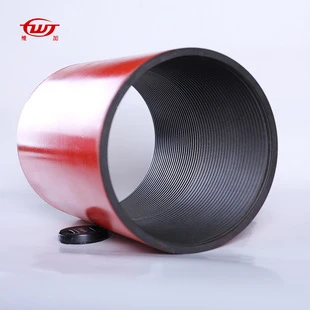- Afrikaans
- Albanian
- Amharic
- Arabic
- Armenian
- Azerbaijani
- Basque
- Belarusian
- Bengali
- Bosnian
- Bulgarian
- Catalan
- Cebuano
- Corsican
- Croatian
- Czech
- Danish
- Dutch
- English
- Esperanto
- Estonian
- Finnish
- French
- Frisian
- Galician
- Georgian
- German
- Greek
- Gujarati
- Haitian Creole
- hausa
- hawaiian
- Hebrew
- Hindi
- Miao
- Hungarian
- Icelandic
- igbo
- Indonesian
- irish
- Italian
- Japanese
- Javanese
- Kannada
- kazakh
- Khmer
- Rwandese
- Korean
- Kurdish
- Kyrgyz
- Lao
- Latin
- Latvian
- Lithuanian
- Luxembourgish
- Macedonian
- Malgashi
- Malay
- Malayalam
- Maltese
- Maori
- Marathi
- Mongolian
- Myanmar
- Nepali
- Norwegian
- Norwegian
- Occitan
- Pashto
- Persian
- Polish
- Portuguese
- Punjabi
- Romanian
- Russian
- Samoan
- Scottish Gaelic
- Serbian
- Sesotho
- Shona
- Sindhi
- Sinhala
- Slovak
- Slovenian
- Somali
- Spanish
- Sundanese
- Swahili
- Swedish
- Tagalog
- Tajik
- Tamil
- Tatar
- Telugu
- Thai
- Turkish
- Turkmen
- Ukrainian
- Urdu
- Uighur
- Uzbek
- Vietnamese
- Welsh
- Bantu
- Yiddish
- Yoruba
- Zulu
casing collar
The Importance of Casing Collars in Well Construction
In the realm of oil and gas drilling, the process of well construction is multifaceted and requires meticulous planning and implementation. One of the essential components that often goes underappreciated is the casing collar. Casing collars play a critical role in ensuring the integrity, safety, and efficiency of the drilling process. This article delves into the importance of casing collars, their types, and their functions within the well construction framework.
What is a Casing Collar?
Casing collars are essentially mechanical devices installed at specific intervals along the casing string during well construction. The casing string comprises the steel pipes that are inserted into the wellbore to stabilize the wall, prevent collapse, and protect the surrounding environment. Casing collars are typically thicker than the casing pipes themselves and are strategically placed to provide various functionalities throughout the drilling process.
Functions of Casing Collars
1. Primary Structural Support The most fundamental function of casing collars is to add structural integrity to the casing string. By providing mechanical strength at specific intervals, casing collars help resist pressure from surrounding formations and contribute to the overall stability of the well.
2. Sectioning of the Casing String Casing collars help in segmenting the casing string into manageable sections. Each section can be individually monitored, allowing for better control over the well construction process. This segmentation is particularly useful for operations requiring intervention or maintenance, as it facilitates easier access to specific parts of the casing.
3. Indication of Depth Casing collars serve as reference points within the wellbore. Each collar is typically marked with depth indicators, which are crucial for drilling operations, as they help operators determine the exact location of the casing within the well. This is vital for ensuring that other equipment, such as logging tools and perforating guns, are deployed accurately.
4. Fluid Control During drilling, the use of drilling fluids is paramount for maintaining the well's stability. Casing collars assist in controlling the flow of these fluids within the casing. By ensuring that fluids are channeled appropriately, casing collars help to mitigate the risk of formation pressure issues and potential blowouts.
casing collar

5. Facilitating Testing and Completion Operations Casing collars are indispensable during well testing and completion operations. They frequently serve as the anchoring points for tools that are used to evaluate reservoir characteristics or for initiating production phases. Their presence simplifies the process of attaching additional equipment and conducting necessary evaluations efficiently.
Types of Casing Collars
There are several types of casing collars, each designed for specific applications within the drilling process
- Round Collars These are the most common type of casing collars. They are easy to install and provide excellent tensile strength, making them suitable for a wide range of applications.
- Square Collars These collars are typically used in situations where additional resistance to rotation is required. Their design capitalizes on increased friction, ensuring that the casing remains stable under varying conditions.
- Coupling Collars Used to connect two sections of casing, coupling collars help in joining casing strings of different diameters. They play a pivotal role in the modular approach to well construction.
- Latch Collars These collars are equipped with latching mechanisms that allow for the quick attachment and detachment of tools, facilitating seamless operations during well construction.
Conclusion
Casing collars may be small in comparison to the overall casing string, but their significance in the well construction process cannot be overstated. From providing structural support to facilitating efficient operations, casing collars are indispensable to the safe and effective extraction of resources from beneath the earth's surface. As technology advances, the design and functionality of casing collars will continue to evolve, further enhancing their role in ensuring the integrity of wells and the safety of personnel involved in drilling operations. Ultimately, understanding the critical nature of casing collars is essential for anyone involved in the oil and gas industry.
-
Tubing Pup Joints: Essential Components for Oil and Gas OperationsNewsJul.10,2025
-
Pup Joints: Essential Components for Reliable Drilling OperationsNewsJul.10,2025
-
Pipe Couplings: Connecting Your World EfficientlyNewsJul.10,2025
-
Mastering Oilfield Operations with Quality Tubing and CasingNewsJul.10,2025
-
High-Quality Casing Couplings for Every NeedNewsJul.10,2025
-
Boost Your Drilling Efficiency with Premium Crossover Tools & Seating NipplesNewsJul.10,2025







